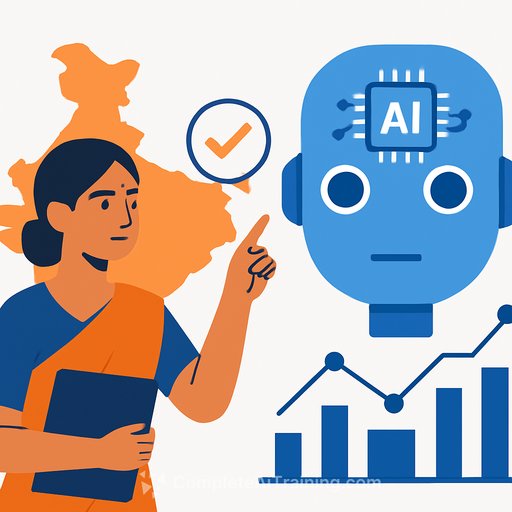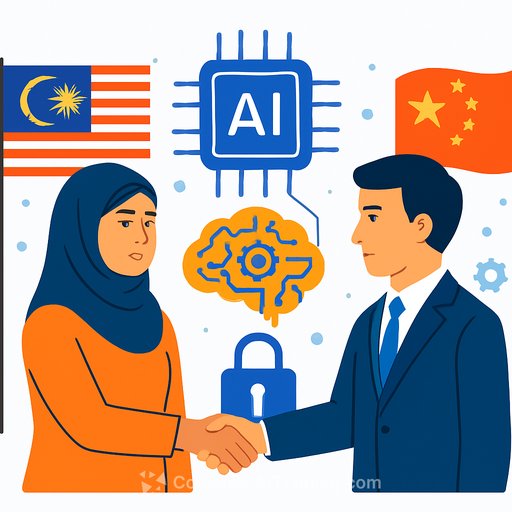India Is Building Homegrown AI Datasets. Here's What Dev Teams Should Do Next
India is moving to build domestic AI datasets to reduce bias in India-related queries and protect national data. Minister of State for Electronics and IT, Jitin Prasada, said the goal is to shift away from foreign-trained models that misinterpret local context and deliver skewed outputs.
He added that the government wants AI access to reach people across the country, not just major cities. The message is clear: build local, build fairly, and make it accessible.
What's Being Built Right Now
- Domestic datasets to train India-focused AI models.
- Deepfake detection tools.
- Synthetic data generation projects.
- AI bias mitigation strategy and evaluation methods.
- Explainable AI framework.
- AI ethical certification framework.
- AI algorithm auditing tools.
- Sector workstreams: health, agriculture, climate action, and assistive tech for learning disabilities.
K Mohammed Y Safirulla from the India AI Mission highlighted collaborations with leading institutions to drive these initiatives.
Implications for Engineering and Data Teams
- Expect new India-centric benchmarks, datasets, and policies. Plan for model fine-tuning and evals specific to Indian languages, regions, and regulatory constraints.
- Bias and safety will move from slides to checklists. Build bias tests, audit trails, and explainability into your MLOps pipelines.
- Data governance will tighten. Enforce provenance, consent, and licensing for any India-oriented datasets you use or create.
- Prepare for third-party audits. Keep reproducible training runs, versioned datasets, and human-in-the-loop review steps.
Email Security Note for Public Sector Teams
Prasada urged the Uttarakhand government to move official email to Zoho's India-built service to improve data safety. If you're leading such a migration, lock in SPF, DKIM, and DMARC, and enforce SSO with conditional access for high-risk accounts.
Actions You Can Take Now
- Set up India-specific evaluation suites covering language, dialect, culture, law, maps, policy, and local entities.
- Add bias tests (group fairness, disparate impact) to CI for model releases. Gate promotion on pass/fail thresholds.
- Instrument explainability (e.g., feature attribution) for critical predictions in health, agri, and public services.
- Create a lightweight model card and data sheet for every model and dataset. Keep these synced with Git and your registry.
- Pilot deepfake detection in media workflows. Add checks at ingest and before publication.
- Document data flows end-to-end: source, consent, retention, access, and deletion SLAs.
Why This Matters
- Local context reduces wrong or harmful outputs about India's people, places, and policies.
- Sovereign datasets protect sensitive information and reduce exposure to foreign policy shifts.
- Standardized audits, ethics, and explainability make it easier to deploy AI in regulated sectors.
Key Quotes
"Presently, the AI platforms and models in use are foreign-based and are using foreign datasets. Hence, they generate biased answers to questions related to India. We are developing domestic datasets to stop that in the future and help develop our own AI models." - Jitin Prasada
"There are ongoing projects on synthetic data generation, AI bias mitigation strategy, explainable AI framework, AI ethical certification framework, AI algorithm auditing tool." - K Mohammed Y Safirulla
Follow Official Updates
Level Up Your Team
- AI Certification for Coding - Upskill engineers building data pipelines, evals, and production AI.
What to Watch Next
- RFPs and partnerships tied to health, agriculture, climate, and assistive tech.
- Release of public datasets and tooling for audits, bias testing, and explainability.
- Guidelines for ethical certification and algorithm audits before deployment.
Your membership also unlocks:






